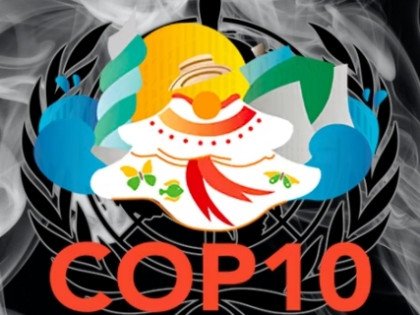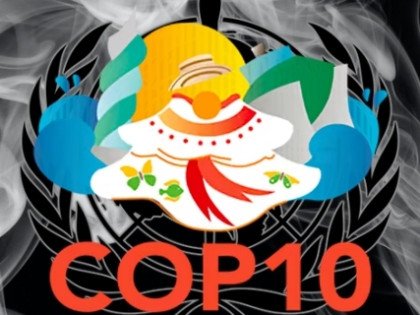President of MOVE, Samsul Ariffin, says the special select committee must review the ‘generational endgame’ bill and recommend that vaping be removed and treated separately as a Tobacco Harm Reduction (THR) tool.
“We’re delighted the special select committee will visit New Zealand at the end of September. Their visit will include meeting the Minister of Health and learning exactly what New Zealand is doing to achieve Smokefee 2025. They will soon see that New Zealand’s generational ban is fundamentally different and superior to Malaysia’s proposal,” says Mr Ariffin.
The Malaysian bill proposes a ban on the sale of cigarettes and tobacco products to anyone born during and after 2007 – a move which has been compared to similar smokefree legislation currently progressing through New Zealand’s parliament.
Unlike New Zealand, however, the Malaysian Health Minister has proposed adding vaping products to the generational ban. New Zealand’s generational ban would only prohibit the sale of tobacco products to anyone born during or after 2009, with vaping products remaining available to those 18 years and older to purchase in retail outlets as was regulated in 2020.
“You can’t ban cigarettes for future Malaysian adults without providing a safer, viable alternative. It’s like banning sugary drinks and sugar-free drinks all at once and hoping it will get people off sugar. If our political leaders are serious about eradicating deadly smoking, Malaysia’s generational endgame bill must only ban the purchase of combustible tobacco not safer nicotine products,” says Mr Ariffin.
CAPHRA (Coalition of Asia Pacific Tobacco Harm Reduction Advocates) is hopeful that Malaysia will take a leaf out of New Zealand’s book. The South Pacific country has seen its overall smoking rate rapidly decline over the past decade thanks to public health authorities actively encouraging smoking cessation through vaping.
In fact, New Zealand’s overall adult daily smoking rate has fallen from 18% in 2006/07 to 9.4% in 2020/21.
“New Zealand’s smoking has halved in recent years not because they banned vaping but because they embraced it. New Zealand has heavily regulated vaping sales and product standards, with significant penalties for any retailers prosecuted for selling to minors. Vaping bans don’t work and that’s why they’re being lifted all around the world,” says Nancy Loucas, Executive Coordinator of CAPHRA.
MOVE says the 21% of Malaysians who smoke deserve a viable, safe, and legal offramp to improve their health and wellbeing. If Malaysia is to reduce its overall smoking rate fourfold to below five percent by 2040, banning vaping will not get them to that national goal.
“Lumping vaping into Malaysia’s anti-smoking bill will only criminalise consumers and retailers. Instead, we now urge MPs on the select committee to take vape and non-combustible products out of the legislation and treat them quite differently as harm reduction tools. Making that distinction will save thousands of Malaysian lives every year,” says Mr Ariffin.
MOVE also believes if vaping is banned for future generations, the black market for vape products will continue to thrive, product safety standards will dangerously remain unchecked, and Malaysia will miss out on substantial tax revenue.
“Regulating adult access to approved vape products, now and in the future, is the only way to deal with Malaysia’s crippling smoking epidemic. As 70 countries worldwide have already proven, adopting a THR approach works. Banning vaping for today or tomorrow’s adults will only fail, and badly,” says Samsul Ariffin.
References:
- The Coalition of Asia Pacific Tobacco Harm Advocates - https://caphraorg.net/
Dave Cross
Journalist at POTVDave is a freelance writer; with articles on music, motorbikes, football, pop-science, vaping and tobacco harm reduction in Sounds, Melody Maker, UBG, AWoL, Bike, When Saturday Comes, Vape News Magazine, and syndicated across the Johnston Press group. He was published in an anthology of “Greatest Football Writing”, but still believes this was a mistake. Dave contributes sketches to comedy shows and used to co-host a radio sketch show. He’s worked with numerous start-ups to develop content for their websites.
Join the discussion
CAPHRA Highlights Tobacco Control Flaws
The Coalition of Asia Pacific Tobacco Harm Reduction Advocates highlights the flaws in tobacco control which has led to the rise of black market in Australia
Alarm Regarding WHO’s Opacity
The Coalition of Asia Pacific Tobacco Harm Reduction Advocates sounds the alarm on WHO and FCTC's “disturbing lack of transparency”
COP10: Use The Evidence
The Coalition of Asia Pacific Tobacco Harm Reduction Advocates demands an evidence-based approach to tobacco harm reduction from the World Health Organisation and the Framework Convention on Tobacco Control
Exclusionary Tactics Criticised
Global tobacco harm reduction advocates have criticised the WHO’s exclusionary tactics at COP10, the Framework Convention on Tobacco Control conference starting today






-listing400.jpg)




